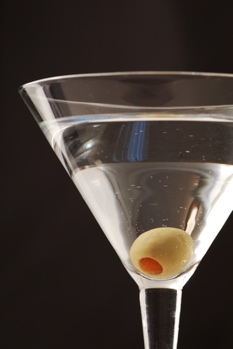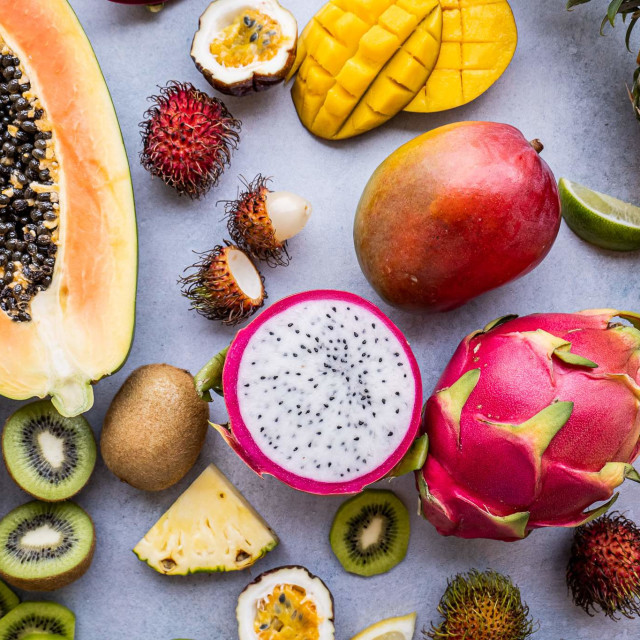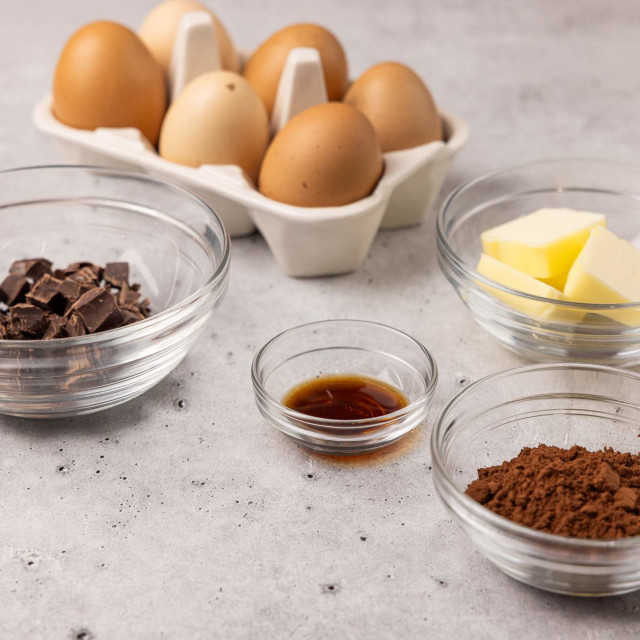Vermouth
 |
|
Often mixed into cocktails at the bar, vermouth's botanical-infused flavor can assist in the kitchen as well. Whether sweet or dry, use it in recipes just like wine. |
Vermouth is an "aromatized" wine that has been fortified with alcohol (usually brandy) and steeped with herbs, flowers, seeds and spices. Cinnamon, thyme, chamomile, quinine and nutmeg are common ingredients, but the exact recipe varies by producer (and they are often closely-guarded trade secrets). Vermouth is perhaps best known for its cocktail mixer role in classic martinis, but it's also a great flavor-booster for soups, sauces, vinaigrettes, meat and fish.
Varieties and Buying Tips
The two styles of vermouth are sweet and dry. Sweet (red) vermouth is highly perfumed, with a slightly sweet flavor and a reddish-brown color from the traditional addition of caramel. It is often drunk as an aperitif or mixed with whiskey and a Maraschino cherry to make a Manhattan. Some producers also make a sweet white (bianco) vermouth that is actually a soft straw color, with notes of vanilla.
Dry (white) vermouth, also called French vermouth, is a light colored wine that is sharply aromatic and dry, but not bitter. It is a key ingredient in mixing dry cocktails like martinis.
Note: Avoid purchasing "cooking vermouth" which has unnecessary added salt and flavorings. With so many uses, a bottle of the real thing is a much better value. Keep it on hand and use as a straight-up aperitif or cocktail mixer as well as a cooking ingredient.
Storage Tips
Vermouth is shelf stable and can be stored upright at room temperature for up to one year. However, since its flavor starts to dissipate after opening, you may choose to refrigerate the bottle after opening and use within three months.
Usage Tips
• Cook with vermouth just as you would with wine.
• Add vermouth and vodka to olive oil-based marinades for meat and fish.
• Toss red vermouth with chopped tomatoes, onions, olive oil and basil for a bruschetta topping.
• Combine vermouth with olive oil and herbs to make a marinade for grilled vegetables like zucchini, squash and peppers.
• Whisk red vermouth into sweet salad vinaigrettes, or dry vermouth into dressings that need balancing.
• Serve chilled vermouth in long-stemmed glasses to guests as an aperitif before dinner.
Substitution Tips
• Dry vermouth: white wine, white grape juice or white wine vinegar.
• Sweet vermouth: apple juice, grape juice or balsamic vinegar.





